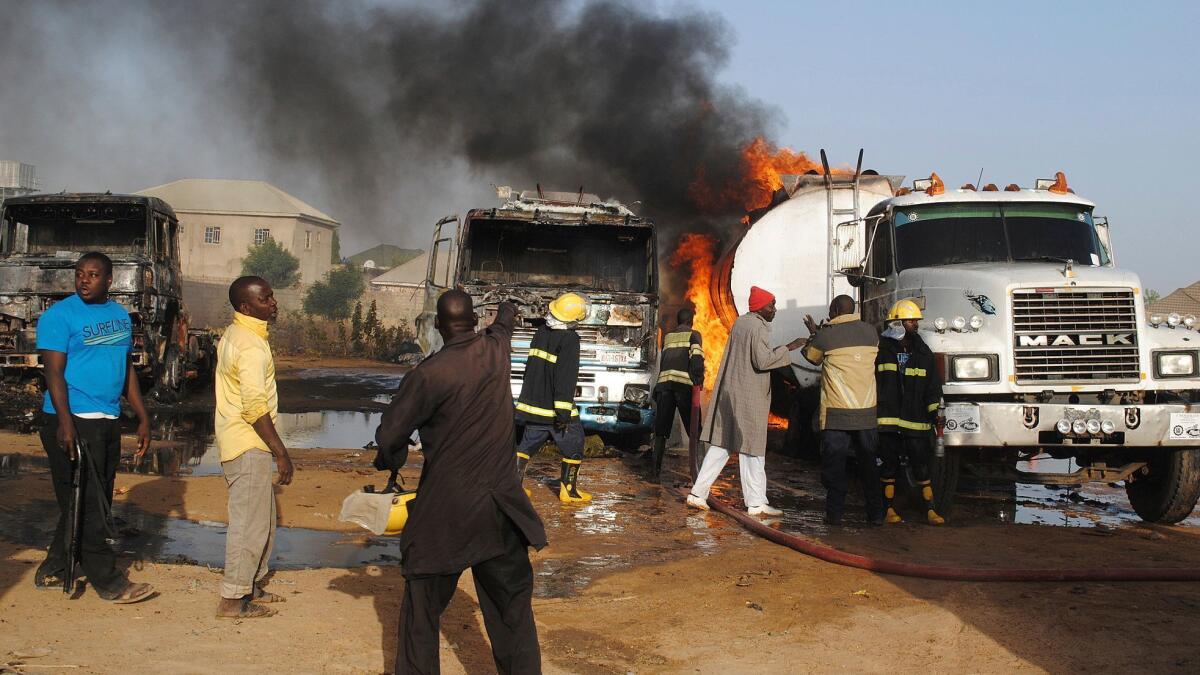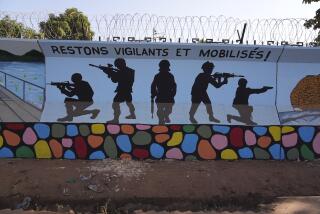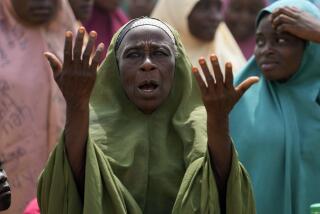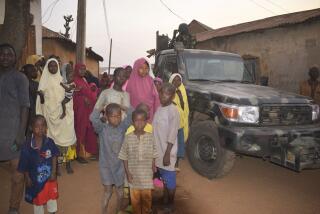Suicide bombers destroy 3 fuel tankers in northeast Nigeria

Three suicide bombers set ablaze three fuel tankers in the center of Nigeria’s northeastern city of Maiduguri before dawn Friday, officials said, just days before a planned visit by the U.N. Security Council.
Soldiers fired at one of the bombers, a teenage girl, to avert what could have been a major attack on the city’s main fuel depot, according to the police chief and a witness.
“We are lucky. Today could have been another sad day for us in Maiduguri,” police commissioner Damian Chukwu told reporters at the scene, where firefighters were dousing several fires.
The attack, outside a gas station opposite the northeastern headquarters of the Central Bank of Nigeria, killed only the three bombers, said Abdulkadir Ibrahim, spokesman for the National Emergency Management Agency.
Officials blamed Boko Haram insurgents who many times have attacked Maiduguri, the birthplace of Nigeria’s homegrown Islamic extremist group.
An elderly woman bomber blew herself up beside a stationary tanker loaded with fuel around 3 a.m., witness Mala Gajibo told The Associated Press.
She was accompanied by a teenage boy and girl who continued down the road toward the fuel depot until they were challenged by soldiers, Gajibo said. Chukwu also said soldiers fired at one of the bombers.
“They ordered them to stop but they chose to run,” Gajibo said. “The male suicide bomber detonated his explosives near S. Baba (gas) filling station, while the girl was shot at by the military and ran under a parked truck loaded with petrol products which went up in flames” when her explosives detonated.
Increased security by Nigerian soldiers and civilian self-defense fighters has averted many suicide bombings in recent months.
The attack comes just days before the U.N. Security Council is expected in Maiduguri as part of a four-nation tour of countries in the Lake Chad Basin devastated by the seven-year Boko Haram uprising that has killed more than 20,000.
The uprising also has left 2.6 million homeless and created what the U.N. has called the continent’s worst humanitarian crisis, with more than 5 million people in urgent need of food aid.
Council members began their tour Friday in Cameroon. A multinational force headquartered in Chad has driven Boko Haram out of towns and villages where the extremists had set up an Islamic caliphate. But suicide bombings and attacks on remote villages and military outposts continue.
More to Read
Start your day right
Sign up for Essential California for news, features and recommendations from the L.A. Times and beyond in your inbox six days a week.
You may occasionally receive promotional content from the Los Angeles Times.






